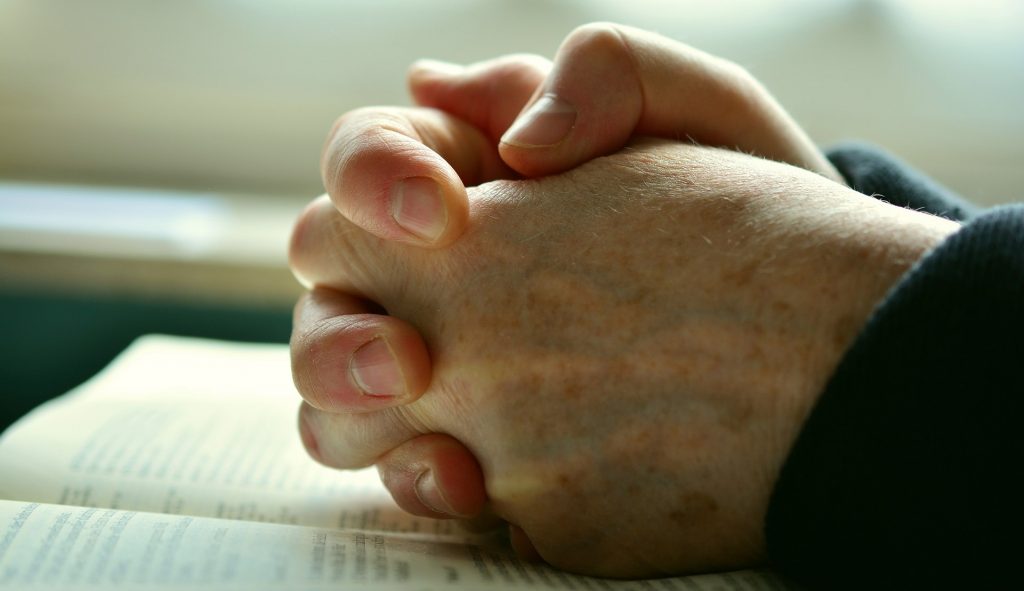
The data is out, but the controversy rages on. A sociologist from the University of Wisconsin-Madison conducted a study of faith and religion and found evidence that friendship at church was more important than religion or doctrine was for member happiness.
He found that those who had strong ties to the worship community were happier than those who attended church, but lacked any close connection to the congregation. Seems telling … until you ask the obvious question: Is there anything about the personality or character of a person who attends a church for a period of time and fails to make connections that would account for the differences in happiness?
Following, are some common-sense advantages religious people have over the non-religious in their pursuit of happiness.
6 Reasons Religious People Live Happier Lives
1. Regular church goers become part of a community of like-minded people aiming at the same shared set of basic life goals who struggle together to reach them. Friendships are forged. Acceptance is extended. Church goers feel included, part of a larger group of people who care for them and love them.
2. Following a religion and its doctrine adds deep and even eternal meaning to life and to daily living. There is a plan for a church goers’ life. Life itself has a plan. There’s a reason we live and a reason for living. Trials and suffering and sorrow have purpose and significance too as we are tried and tested in preparation for an afterlife.
3. Religiosity provides life with direction and momentum. Religion advocates a particular way to live, to believe, to dedicate oneself to God. Religion proclaims precepts and principles to live by.
Church goers who take their religion seriously, then, have a cause they are dedicated to that helps them grow and develop as human beings. Growth is an essential characteristic of happiness. Stagnation is a principle of depression and sadness and boredom.
Growth and personal improvement, on the other hand, results in greater confidence and a sense of liberation and satisfaction with life.
4. We can all use frequent reminders and encouragement to live and think in constructive ways. Church goers get regular reminders about hope and faith and humility and gratitude and life’s purpose and living with decency and forgiving others.
So much of what is preached from the pulpit can, in fact, lift and inspire and redirect and focus and shape and form us into better people with qualities that lend themselves to developing a happy life.
5. Not only is organized religion a good place to feel love from others, believers also feel a closeness with God and His love at church. And when an all-knowing and all-powerful God reaches out in love for us, that’s gotta be a happiness booster.
6. The faith in a world and a universe that is overseen by an omnipotent hand is a powerful thing. It is a world in which ultimate justice will be meted out. Believing in some kind of cosmic justice by the Great Judge increases happiness as the many horrible injustices of life are contemplated.
The injustices of life will be dealt with justly. Holocaust victims will be treated justly. Nazis will be treated justly. Rapists and rape victims will both experience ultimate justice. And that adds a measure of comfort to those who are disturbed by such things.
Afterthoughts
This post was not written in an attempt to convince you of the virtues of religion. Rather, it was to highlight the well-documented relationship between religiosity and happiness. The hope is that some lessons can be drawn from the lives of those religious people who report experiencing the most happiness from their religion.
For the non-religious, look for ways you can incorporate principles found in the religious lives of happy people. Some will be difficult (ultimate justice in the universe). Others will be easier (frequent reminders about high principles that will, of themselves, lead to happier lives, by reading good books by deep thinkers, religious or not).
For the religious, sadly, not all religious people are happy. As a matter of fact, there is some evidence that while more religious people report being extremely happy than their atheist counterparts, more religious people also report being more sad than atheists.
In other words, religion can lead to happier lives … or sadder lives. I suspect the difference is in how they interact with their religion and the attitudes they bring to their spiritual pursuits.
The challenge for religious people is to figure out ways of engaging religion in a way that adds meaning to your life and lifts you to higher levels of joy. Still, there will always be psychic discomfort when imperfectly holding to a set of difficult standards we believe God wants us to hold to.
HOW HAS RELIGION AFFECTED YOUR HAPPINESS?
- Has it helped?
- Has it hurt?
- Tell us about your experience.
Photo by Pixabay







































Thank you for pointing out that regular church goers become part of a community that aims to share a set of life’s goals and struggle together. My husband and I just moved to a new area and have been looking at the churches in the community. It’s good to know that religion can bring people together.
The perspective you gain when you accept the gospel gives you so much clarity throughout your life. I believe that the Bible, the Book of Mormon, Doctrine & Covenants, and The Pearl of Great Price are all scripture. Combined, these books give much guidance on pre-mortal, mortal, and eternal identity and purpose.
Fascinating insights on the link between religiosity and happiness. Your exploration of the role of community, purpose, and cosmic justice offers thought-provoking perspectives. A balanced view highlighting how engaging with religion can impact well-being.